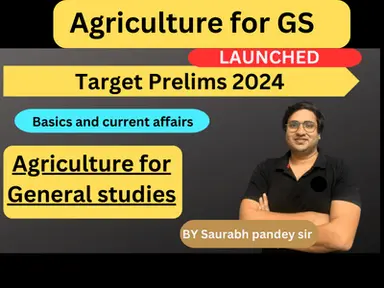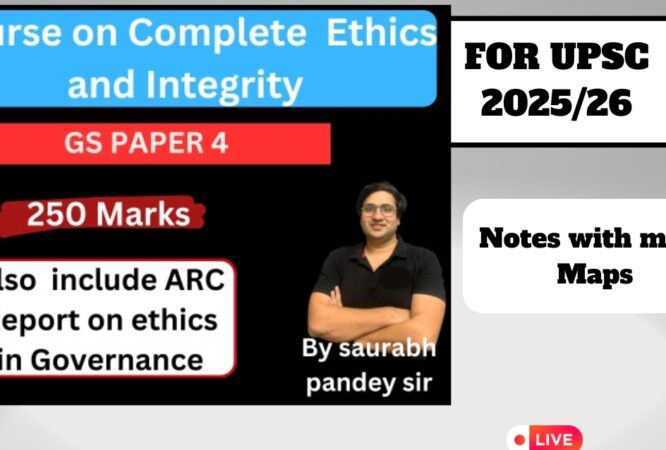PM CARES for Children- Empowerment of COVID Affected Children
Why in News?
- Prime Minister announced a number of benefits to children impacted by the current COVID Pandemic.
- All children who have lost both parents or surviving parent or legal guardian/adoptive parents due to Covid 19 will be supported under ‘PM-CARES for Children’ scheme.
- Fixed Deposit in the name of the child:
PM CARES will contribute through a specially designed scheme to create a corpus of Rs 10 lakh for each child when he or she reaches 18 years of age. This corpus:
- Will be used to give a monthly financial support/ stipend from 18 years of age, for the next five years to take care of his or her personal requirements during the period of higher education and
- On reaching the age of 23 years, he or she will get the corpus amount as one lump-sum for personal and professional use.
- School Education: For children under 10 years
- The child will be given admission in the nearest Kendriya Vidyalaya or in a private school as a day scholar.
- If the child is admitted in a private school, the fees as per the RTE norms will be given from the PM CARES.
- PM-CARES will also pay for expenditure on uniform, text books and notebooks.
- School Education: for children between 11-18 years:
- The child will be given admission in any Central Government residential school such as Sainik School, Navodaya Vidyalaya etc.
- In case the child is to be continued under the care of Guardian/ grandparents/ extended family, then he or she will be given admission in the nearest Kendriya Vidyalaya or in a private school as a day scholar.
- If the child is admitted in a private school, the fees as per the RTE norms will be given from the PM CARES.
- PM CARES will also pay for expenditure on uniform, text books and notebooks.
- Support for Higher Education:
- The child will be assisted in obtaining education loan for Professional courses/ Higher Education in India as per the existing Education Loan norms. The interest on this loan will be paid by the PM CARES.
- As an alternative, scholarship equivalent to the tuition fees / course fees for undergraduate/ vocational courses as per Government norms will be provided to such children under Central or State Government Schemes.
- For children who are not eligible under the existing scholarship schemes, PM CARES will provide an equivalent scholarship.
- Health Insurance
- All children will be enrolled as a beneficiary under Ayushman Bharat Scheme (PM-JAY) with a health insurance cover of Rs. 5 lakhs.
- The premium amount for these children till the age of 18 years will be paid by PM CARES.
PIB
Rice Export
Why in News?
- In a major boost to India’s non-basmati rice exports potential, two consignments of patented ‘village rice’ sourced from Kumbakonam, Thanjavur district, Tamil Nadu by a start-up Udaya Agro Farm was exported to Ghana & Yemen.
- Enriched with protein, fibre, and a variety of minerals, ‘village rice’ is sourced directly from farmers of Thanjavur, also known as rice bowl of Tamil Nadu.
Recent Exports
- Recently, a consignment of rice was exported from the Paradip International Cargo Terminal, Odisha to Vietnam. This was for the first time in recent years, non-basmati rice was exported from Paradip Port.
- In March, 2021, the first consignment of ‘red rice’ from Assam was exported to the USA. Iron rich ‘red rice’ is grown in Brahmaputra valley of Assam, without the use of any chemical fertilizer. The rice variety is referred as ‘Bao-dhaan’, which is an integral part of the Assamese food.
- Non-basmati rice exports to African and Asian countries are undertaken from various ports of India such as Kakinada, Vishakhapatnam, Chennai, Mundra and Krishnapatnam. Paradip will soon emerge as one of the major rice-exporting port of the country.
APEDA & REPF
- The government had set up the Rice Export Promotion Forum (REPF), under the aegis of the APEDA.
- REPF has representations from rice industry, exporters, officials from APEDA, ministry of commerce and directors of agriculture from major rice producing states including West Bengal, Uttar Pradesh, Punjab, Haryana, Telangana, Andhra Pradesh, Assam, Chhattisgarh and Odisha.
PIB
Offshore Patrol Vessel Sajag
Why in News?
- National Security Advisor (NSA) recently commissioned the Indian Coast Guard (ICG) Offshore Patrol Vessel (OPV) Sajag, which has been constructed by Goa Shipyard Limited.
About
- Sajag is the third in a series of five offshore patrol vessels indigenously designed in line with Prime Minister Narendra Modi’s ‘Make in India’ vision.
- The indigenously-built ship is fitted with advanced technology equipment, weapon and sensors capable to carry a twin engine helicopter and four high speed boats.
- The concept of forming ICG came into being post 1971 war, when it was assessed that maritime borders are equally vital as land borders.
- The ICG, which was created through an Act of Parliament in 1978, has traversed a long journey in the last four decades. It is a multifarious force, undertaking concurrent operations and being the first responder for any developing situation at sea.
PIB
YUVA – Prime Minister’s Scheme For Mentoring Young Authors
Why in News?
- The Ministry of Education, Department of Higher Education launched YUVA- Prime Minister’s Scheme For Mentoring Young Authors,
- an Author Mentorship programme to train young and budding authors (below 30 years of age)
- in order to promote reading, writing and book culture in the country, and project India and Indian writings globally.
About
- The launch of YUVA (Young, Upcoming and Versatile Authors) is in tune with PM’s vision to encourage young writers to write about India’s freedom struggle.
- YUVA is a part of India@75 Project (Azadi Ka Amrit Mahotsav) to bring to the fore the perspectives of the young generation of writers on themes like Unsung Heroes, Freedom Fighters, Unknown and Forgotten Places and their role in National Movement, and other related themes in an innovative and creative manner.
- The National Book Trust, India under the Ministry of Education as the Implementing Agency will ensure phase-wise execution of the Scheme under well-defined stages of mentorship.
- The books prepared under this scheme will be published by National Book Trust, India; and will also be translated into other Indian languages ensuring the exchange of culture and literature, thereby promoting ‘Ek Bharat Shreshtha Bharat’.
PIB
Low-chilling apple variety
Why in News?
- A farmer from Himachal Pradesh has developed an innovative self-pollinating apple variety that does not require long chilling hours for flowering and fruit setting.
- This has spread to plain, tropical, and subtropical areas in various parts of India, where the temperature is as high as40 -45 ºC during summer.
- Commercial cultivation of this apple variety has been initiated in Manipur, Jammu, low lying areas of Himachal Pradesh, Karnataka Chhattisgarh, and Telangana, and fruit setting has been expanded to 23 states & UTs so far.
- This innovative apple variety – HRMN 99.
PIB
Natural Dye
Why in news?
- Scientists have found that the natural indigo dye extracted from leaves of a plant of the bean family is capable of protecting human eyes from harmful laser radiation.
- It could be used to develop optical limiters useful in weakening the potentially harmful radiation and protecting the human eyes or other sensitive optical devices from accidental damage in an environment where such lasers are in use.
- The blue dye extracted from Indigoferatinctoria or the famed Indigo plants has been used over the years to colour clothes and clothing materials.
Findings
- The researchers extracted the dye and stored it in a refrigerator below 4º Celsius to preserve its natural properties.
- Their study on how much it absorbed light at different wavelengths of the electromagnetic spectrum showed that the absorption is maximum in the ultraviolet region of the spectrum, at a wavelength close to 288 nanometres, and in the visible region, close to 660 nanometres.
- The absorption is comparatively high for the green light as well.
- Indigo absorbs light because of molecular absorption bands.
- The maximum absorption wavelength can vary over several nanometers depending on the dye’s solvent and concentration.
- The absorption’s variation with wavelength indicated that chlorophyll, an organic compound that takes part in photosynthesis, is present in the dye.
- The team found that when they increase the intensity of the laser pulse, the dye absorbs more light. That is, it is more opaque to higher intensity light. Scientists refer to such materials as an ‘optical limiter’.
- Optical limiters are useful in weakening the potentially harmful radiation emitted by powerful lasers and protecting both eyes and sensitive optical instruments.
PIB
Bal Swaraj (COVID-Care link)
Why in News?
- The National Commission for Protection of Child Rights (NCPCR), in furtherance to its function as a monitoring authority under section 109 of the Juvenile Justice Act, 2015 and in view of the growing problem related to children affected by COVID-19, has devised an online tracking portal “Bal Swaraj (COVID-Care link)” for child in need of care and protection.
- Created with a purpose for online tracking and digital real time monitoring mechanism of children who are in need of care and protection.
Significance
- The Commission has extended the use of this portal for tracking children who have lost both its parents or either of the parent during COVID-19.
- The children who have lost family support or are without any ostensible means of subsistence are children in need of care and protection under Section 2(14) of the Juvenile Justice Act, 2015 and all procedures given under the Act for such children must be followed to ensure the well-being and best interest of children.
Aim
- “Bal Swaraj-COVID-Care” portal is aimed at tracking the children affected by COVID-19 right from the production of children before the Child Welfare Committee (CWC) to the restoration of the children to their parent/guardian/relative and its subsequent follow-up.
- NCPCR is a statutory body and works under the aegis of Ministry of Women and Child Development, Govt. of India.
PIB
Tianzhou-2 cargo spacecraft
Why in News?
- China’s cargo spacecraft, carrying supplies, equipment and propellant, docked with the space station’s key module Tianhe.
- It blasted off via a Long March-7 Y3 rocket from the Wenchang Space Launch Center on the southern island of Hainan.
- Tianzhou-2 carried supplies for future astronauts including food for the Shenzhou-12 crew which will be launched next month for a three-month stay on the station, as well as two tons of propellant.
- Tianzhou-2 is the second of 11 missions needed to complete China’s first self-developed space station around 2022, and follows the launch of Tianhe, the first module, in late April.
- The three-module space station will rival the International Space Station (ISS), which is backed by countries including the United States, Russia and Japan. China was barred from participating in the ISS by the United States.
- Next year, China will launch the two other core modules — Wentian and Mengtian — using the Long March 5B, its biggest and most powerful space transport vehicle.
- That rocket, capable of sending 25 tonnes of payload into low Earth orbit, was a source of worry recently as it re-entered the atmosphere after delivering Tianhe into orbit.
THE HINDU
Do worms have an immune system?
- Roundworms (Caenorhabditis elegans) are animals that lack dedicated immune cells. But they are constantly under attack from viruses and fungal parasites called microsporidia.
- Researchers from the U.S have now decoded the complex dynamics that are involved in how these organisms sense an infection.
- Worms can sense changes in their metabolism and then unleash protective defenses, even if they don’t directly sense the pathogens.
- The team studied an important biological pathway in the worms – the purine metabolism pathway.
- The results suggest that the host has developed ways to sense the theft of purine metabolites.
- When these key cellular building blocks are stolen by the pathogen, the host senses this theft to mount an immune response to the pathogen.
THE HINDU
T cells help blood cancer patients fight Covid
Why in News?
- Researchers found that blood cancer patients with Covid-19 who had higher CD8 T cells, many of whom had depleted antibodies from cancer treatments, were more than 3 times likelier to survive than patients with fewer CD8 T cells.
- Immune profiling of patient blood samples revealed that patients with blood cancers, in particular patients treated with anti-CD20 antibodies, had decreased B cells and antibodies compared to patients with solid cancers and patients without cancer.
- Immune profiling of patient blood samples revealed that patients with blood cancers, in particular patients treated with anti-CD20 antibodies, had decreased B cells and antibodies compared to patients with solid cancers and patients without cancer.
IE
How IAS officers are put on central deputation
Why in News?
- Recently West Bengal Chief Secretary Bandyopadhyay, an IAS officer, was due to begin an extension of three months after retiring. Instead, the Centre has asked him to report on Monday and join the Government of India.
How officers get an extension
- Rule 16(1) of DCRB (Death-cum-Retirement Benefit) Rules says that “a member of the Service dealing with budget work or working as a full-time member of a Committee which is to be wound up within a short period may be given extension of service for a period not exceeding three months in public interest, with the prior approval of the Central Government”.
- For an officer posted as Chief Secretary of a state, this extension can be for six months.
Central deputation
- In normal practice, the Centre asks every year for an “offer list” of officers of the All India Services (IAS, IPS and Indian Forest Service) willing to go on central deputation, after which it selects officers from that list.
- Rule 6(1) of the IAS Cadre Rules says an officer may, “with the concurrence of the State Governments concerned and the Central Government, be deputed for service under the Central Government or another State Government…”
- It says “in case of any disagreement, the matter shall be decided by the Central Government and the State Government or State Governments concerned shall give effect to the decision of the Central Government.”
- Rule 7 of the All India Services (Discipline and Appeal) Rules, 1969, states that the “authority to institute proceedings and to impose penalty” will be the state government if the officer is “serving in connection with the affairs of a state…”
- For any action to be taken against an officer of the All India Services, the state and the Centre both need to agree.
IE
NASA is sending water bears and baby squid to the ISS
Why in News?
- On June 3, NASA will send 128 glow-in-the-dark baby squids and some 5,000 tardigrades (also called water bears) to the International Space Station for research purposes.
- The water animals, which will be launched aboard SpaceX’s 22nd cargo resupply mission to the ISS, are part of experiments that could help scientists design improved protective measures for astronauts going on long-duration space travel.
- The experiments are also aimed at better understanding how beneficial microbes interact with animals, potentially leading to breakthroughs in improving human health on Earth.
International Space Station
- A space station is essentially a large spacecraft that remains in low-earth orbit for extended periods of time.
- It is like a large laboratory in space, and allows astronauts to come aboard and stay for weeks or months to carry out experiments in microgravity.
- The ISS has been in space since 1998, and has been known for the exemplary cooperation between the five participating space agencies that run it: NASA (United States), Roscosmos (Russia), JAXA (Japan), ESA (Europe), and CSA (Canada).
So, why are the sea animals needed at the ISS?
- Studies involves looking at how the water bears– tiny animals (around 1mm long) that can adapt to extreme conditions on Earth, including high pressure, temperature and radiation– would behave in a spaceflight environment.
- Researchers will be able to study their hardiness close up, and possibly identify the genes that allow them to become so resilient.
- By learning how the water bears can survive in low gravity conditions, it would be possible to design better techniques to keep astronauts healthy on long-duration space missions.
- Scientists also want to look at how microgravity conditions affect the relationship between the bobtail squid –which are also tiny (3 mm long)– and beneficial microbes, as part of a study called UMAMI, short for Understanding of Microgravity on Animal-Microbe Interaction.
- In the human body, microorganisms contribute to a variety of functions, including digestion, developing the immune system and detoxifying harmful chemicals.
About UMAMI
- Understanding of Microgravity on Animal-Microbe Interactions (UMAMI) examines the effects of spaceflight on the molecular and chemical interactions between beneficial microbes and their animal hosts.
- Gravity’s role in shaping these interactions is not well understood and microgravity provides the opportunity to improve that understanding. Results could then be applied to the better understanding of human physiology in the space environment.
IE





